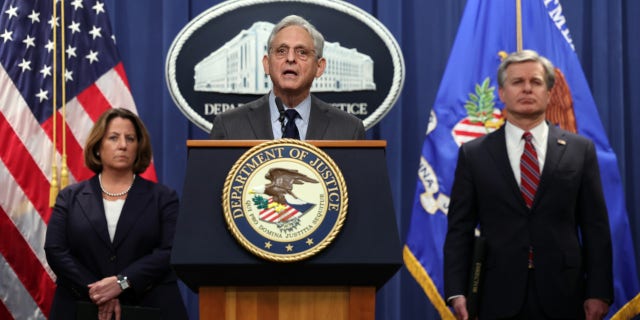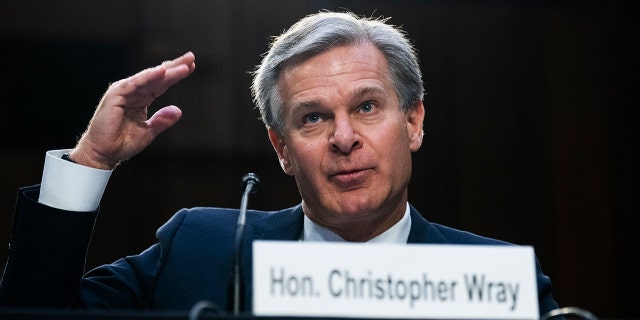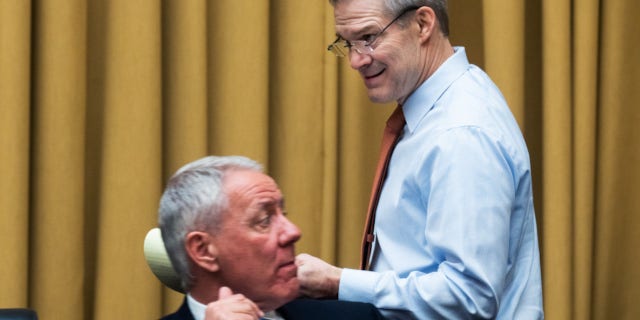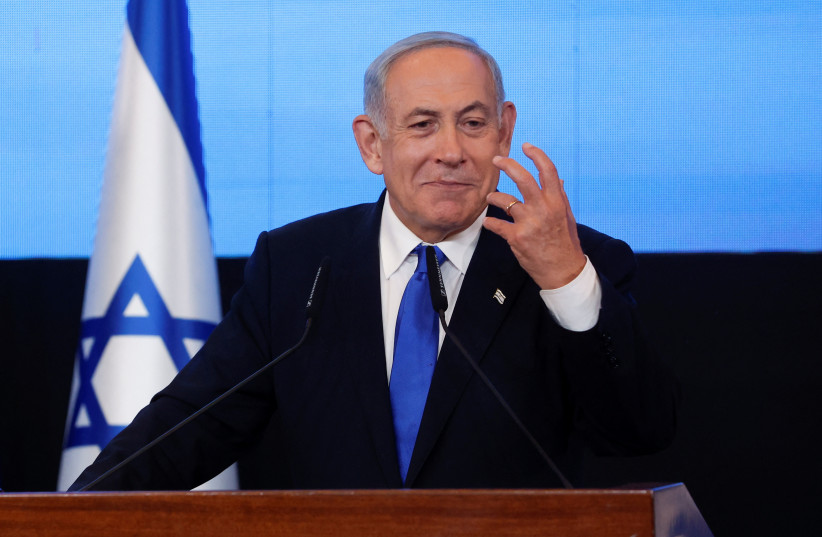by Melanie Phillips
Those clutching their pearls over the “fascists” poised to join Israel’s new government should look in the mirror.
With the result of its election this week, Israel has joined other
Western countries in a notable current trend: A revolt by the public
against the political establishment.
The Religious Zionist Party
has now become the third-largest party in the Knesset. This is likely to
mean cabinet posts for the perceived rabble-rouser Itamar Ben-Gvir and
the ultra-conservative Bezalel Smotrich in a new government led by the
Likud Party’s Benjamin Netanyahu.
Just as happened in Hungary,
Italy, the U.S. and Sweden, the once-fringe Religious Zionist Party has
come to power because a significant proportion of the public has become
profoundly disillusioned with a political establishment that it felt was
ignoring and betraying its interests and values.
Before the
election, a number of mainstream conservative-minded Israeli voters said
they would be voting for Ben-Gvir. So too did a surprising number of
the secular young in Tel Aviv. For the latter, Ben-Gvir’s authenticity
and directness made him an unlikely political rock star. In addition,
among some conservatives, there was a weariness with Netanyahu.
Others
who had previously voted for the Yamina Party’s Naftali Bennett felt a
deep sense of betrayal when he tore up his previous promises and
principles and formed a governing coalition with the left-of-center Yair
Lapid that depended upon the anti-Zionist Islamist Ra’am Party.
As
this coalition staggered along, there was further disillusionment.
Bennett and Lapid seemed to be groveling to the Biden administration,
only for Israel to get kicked in the teeth in response.
The
government failed to tackle rapidly increasing domestic threats. Illegal
Arab settlements in the Negev and the Galilee expanded exponentially,
posing a potential threat to Israel’s territorial integrity. Islamist
radicalization took increasingly widespread hold. Terrorism and violence
rose. Many areas that had been safe for Israeli Jews became unsafe.
On election day, a Jewish young woman in Tiberias narrowly escaped an attempted kidnapping by an Arab man. Last weekend, five Israeli soldiers were wounded in a terror attack in the Jordan Valley. Last week, an Israeli was murdered in Kiryat Arba.
Ben-Gvir’s
pitch was restoring public security. “We shall act against those who
throw Molotov cocktails or stones and put at risk prison guards, women
and do everything to jeopardize the system,” he said. “It’s about time that the soldiers of the IDF and the policemen get support and backing.”
This
resonated. But it doesn’t mean Israelis have become extreme. It means
they were angry at a political and security establishment that appeared
sluggish, incompetent and in thrall to liberal activist judges.
In
different contexts, similar “populist” insurgencies have taken place in
other Western countries. They have all been based on defending the
integrity of the nation and upholding its culture against threats to
destroy it from left-wing ideologues, Islamist radicals or a combination
of the two.
In the United States, former President Donald Trump
was brought to power as a pushback against the attempt by the liberal
elite—aided by fellow-travelling “Republicans in Name Only”—to destroy
America’s national identity and core values.
In Britain, a similar
insurgency delivered Brexit, though the continued failure to uphold the
country’s integrity as a nation and defend its borders against illegal
immigration still threatens to destroy the ruling Conservative Party.
The
Western left’s principal bogeyman, Hungary’s Prime Minister Viktor
Orban, proclaims that he runs an “illiberal democracy” that upholds
socially conservative values and keeps the country safe from Islamist
entryism.
Last month, Sweden formed a new government dependent on
support from the ultra-nationalist Sweden Democrats after the public
finally revolted against increasing Islamist violence.
Italy’s new
Prime Minister Giorgia Meloni, who has pledged to fight illegal
immigration and Islamization, says the political philosophy of her
Brothers of Italy Party is: “Yes to universal Christian values, no to
Islamist violence. Yes to safe borders, no to mass migration. Yes to our
civilization and no to those who want to destroy it.”
The
Brothers of Italy Party was founded in 2012 by Meloni and others who had
previously belonged to a party with roots in Mussolini-style fascism.
Meloni insists she disavows fascism completely.
But to Western liberals, every part of her “center-right” platform of defending Western civilization is
fascism. For such people, the West’s historic culture and values are
themselves extremist, cruel, oppressive, racist, xenophobic,
Islamophobic and neo-Nazi.
It is precisely that demonization that
has driven so many mainstream voters into supporting leaders whose
agenda may indeed be authoritarian or illiberal.
But the left has
shifted the needle on the ideological compass. What was previously
regarded as a left-wing threat to a civilized and self-disciplined
social order is now deemed the center ground, while what was previously
considered the center is now denounced as right-wing or far-right.
The
hypocrisy from those now having a fit of the vapors over the rise of
Ben-Gvir is truly epic. They shout that he is a threat to democracy. Yet
they made no complaint when Bennett and Lapid governed courtesy of
Arabs whose agenda is to destroy Israel.
Despite the careful
declaration by Ra’am’s leader Mansour Abbas that Israel would always be a
Jewish state, his party remains avowedly anti-Zionist and committed to
replacing the State of Israel with a Muslim theocracy.
Ra’am, like
Israel’s other Arab parties, is also implacably hostile to the LGBTQ
agenda. Yet no Western liberals ever accused it of “homophobia,” a slur
they now hurl at Ben-Gvir and Smotrich.
Those screaming about the
threat to Israeli democracy are the same people who utter not a peep of
protest when the despotic Palestinian Authority cancels elections,
forces journalists under pain of death to write only the approved line
and routinely jails and even kills dissidents.
They are the same
people who have remained utterly silent over the supremely
anti-democratic, two-year attempt to lever Trump out of office through
dirty tricks involving elements in the FBI, the administrative class and
the Democratic Party.
Above all, these liberals fail to
acknowledge their own profound illiberalism. They try to coerce
acceptance of their ideological dogma through intimidation, character
assassination and suppression of dissent.
A graphic example of a
society that has passed through the moral and political looking-glass
arose in Britain a few years back, when under the administration of a
Conservative government, the education regulator tried to force haredi
Jewish schools to teach homosexuality.
Ignoring its own reports
that these schools were exemplary in instilling tolerant values, the
regulator refused to acknowledge that they never taught sexuality of any
kind because of their religious beliefs.
The
haredi said privately that if they lost this battle, they would leave
Britain for a country that would grant them religious freedom. The
country they had in mind, where they believed they would be safe because
it was defending biblical values, was Orban’s Hungary.
The
mainstream cultural and political establishment has long been warned
that, if it fails to uphold core cultural values, the resulting vacuum
may be filled by objectionable characters. The “populist” leaders who
have duly arisen are the creation of the liberals who are now clutching
their pearls.
We have yet to see from Ben-Gvir’s actions whether
he has indehed renounced his youthful support for Kahanist extremism.
But even if he has, Western liberals will cut him no slack whatsoever.
Anything that departs in any way from any part of left-wing dogma will
be resisted with everything they can throw at it.
In addition to the physical threats to its existence, Israel has now joined the West’s culture wars.
Melanie Phillips, a
British journalist, broadcaster and author, writes a weekly column for
JNS. Currently a columnist for The Times of London, her personal and
political memoir Guardian Angel has been published by Bombardier, which
also published her first novel, The Legacy. Go tomelaniephillips.substack.comto access her work.
Source: https://www.israelnationalnews.com/news/362246
Follow Middle East and Terrorism on Twitter















